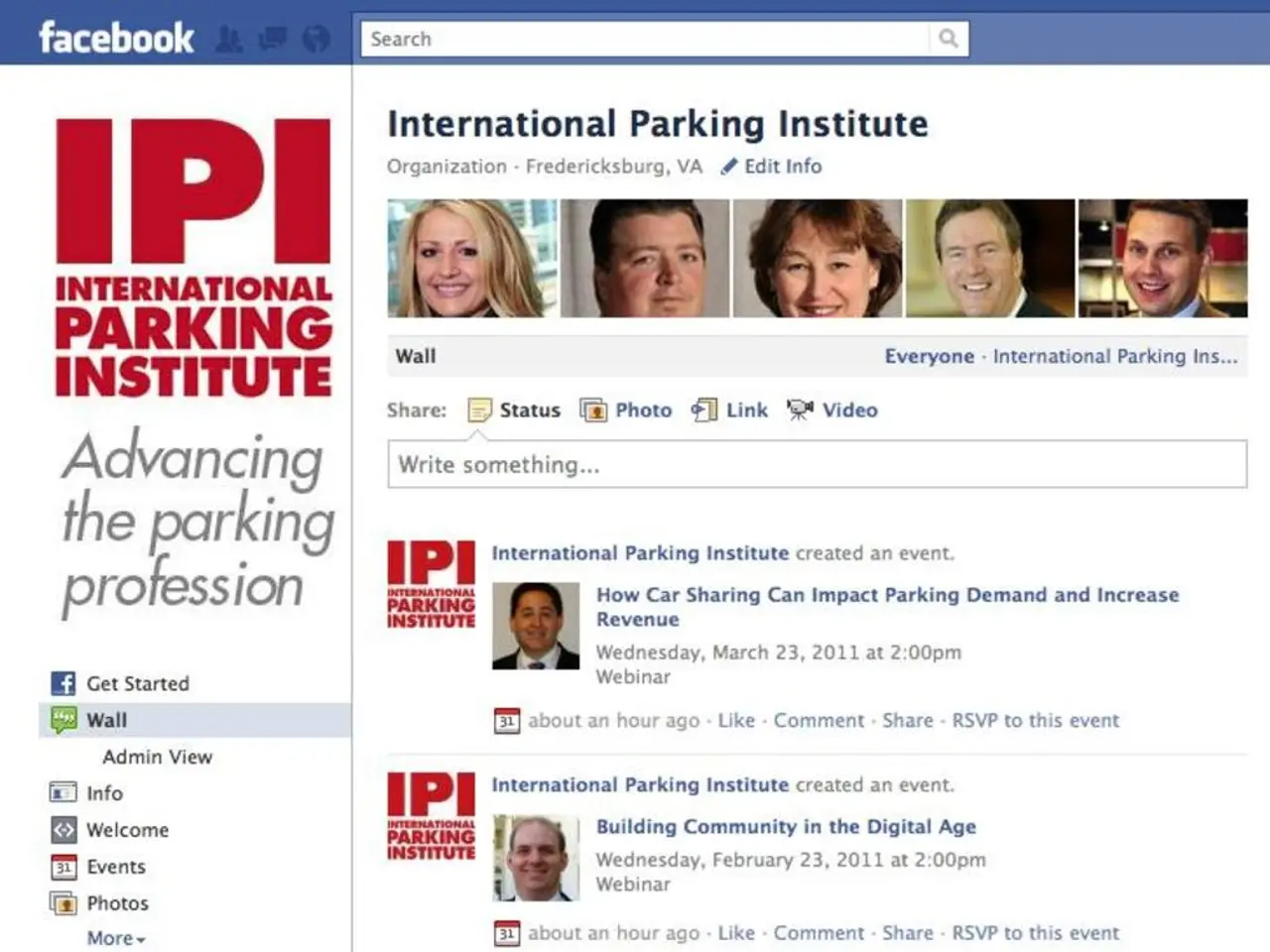Government authorities in Pakistan contemplating limitations on social media usage for youth following incidents of violence
In recent times, concerns about the rising instances of violence against women, particularly online, have become a pressing issue in Pakistan. Ume Laila Azhar, the chairperson of the National Commission on the Status of Women, is one such voice advocating for change.
The tragic murder of Qandeel Baloch, a popular internet personality, in 2016, authored about by journalist Sanam Maher in her book, serves as a grim reminder of the risks women face in the digital sphere. Without addressing the deeply rooted misogyny that Pakistani women have long faced, violence against them will continue both online and off, according to Ume Laila Azhar.
Efforts to tackle gender-based violence (GBV) on social media in Pakistan are increasingly focused on policy discussions about restricting young people's access to social media. This shift comes in response to high-profile incidents, such as the murder of a teenage social media star, which underscore the risks women face online.
Civil society groups, like Media Matters for Democracy, have organised workshops to empower women journalists to counter online hate and GBV. The aim is to foster a stronger media response and awareness. Pakistani leaders have been prompted by these incidents to consider regulatory and preventive actions, including social media restrictions for youth, reflecting an ongoing debate about balancing freedom of expression against safety concerns.
However, explicit large-scale government-led programs or concrete legal reforms specifically targeting GBV on social media are not detailed in the current sources. There is, however, public and international pressure, including critical observations from other countries and the United Nations, emphasizing the need for Pakistan to improve its judicial accountability for crimes against women, including sexual and gender-based violence.
These critiques highlight gaps in Pakistan’s enforcement and the importance of survivor-centered approaches in prevention, relief, and prosecution mechanisms. Moreover, global initiatives such as the IFC’s recent launch of programs addressing GBV, including knowledge hubs and workplace respect platforms, indicate an international movement possibly influencing Pakistan’s private sector and civil society towards better practices.
In summary, while there is growing recognition and discourse at both societal and governmental levels, the status of efforts to address GBV on social media in Pakistan is evolving, with concrete and comprehensive responses still in formative stages.
The murder of Sana Yousaf, a 17-year-old social media star, in June, was one such case linked to social media. Umar Hayat, the main suspect in Sana's murder, knew her from social media and wanted to meet her. He broke into her house in Islamabad and shot her dead.
The issue of GBV on social media is not isolated to high-profile cases. In October, a man was arrested for killing four female family members in Karachi over their immodest TikTok videos. Shmyla Khan, an independent digital rights researcher, states that these killings are part of a larger issue of gender-based violence in conservative Pakistan.
Sana's family did not know she was dealing with unwanted advances online. Ume Laila Azhar suggests that the attention needed is prevention and security, not just protection from the state. Younger people in Pakistan see the online space as a space they are entitled to, according to Sanam Maher.
Despite the challenges, there are signs of progress. TikTok has stated it will remove videos, comments, and hashtags identified as containing misogyny. The proposed ban on social media for young people under 16 in Pakistan was met with skepticism from many, but it underscores a growing awareness and concern about the issue.
In conclusion, the fight against GBV on social media in Pakistan is a complex and ongoing battle. While there is a growing recognition of the problem and efforts are being made, comprehensive and effective solutions are still in the making. The need for prevention, security, and survivor-centered approaches cannot be overstated.
- Ume Laila Azhar asserted that without addressing the deeply rooted misogyny on social media, violence against women in Pakistan will persist, calling for attention to prevention and security measures rather than just state protection.
- In response to high-profile cases, such as the murder of Sana Yousaf, a social media influencer, there have been efforts to address gender-based violence (GBV) on social media platforms, with TikTok committing to removing objectionable content.
- Beyond high-profile cases, pervasive gender-based violence on social media extends to everyday incidents, as exemplified by the murder of four female family members in Karachi due to their immodest TikTok videos, emphasizing the need for comprehensive and effective solutions to this ongoing battle.






